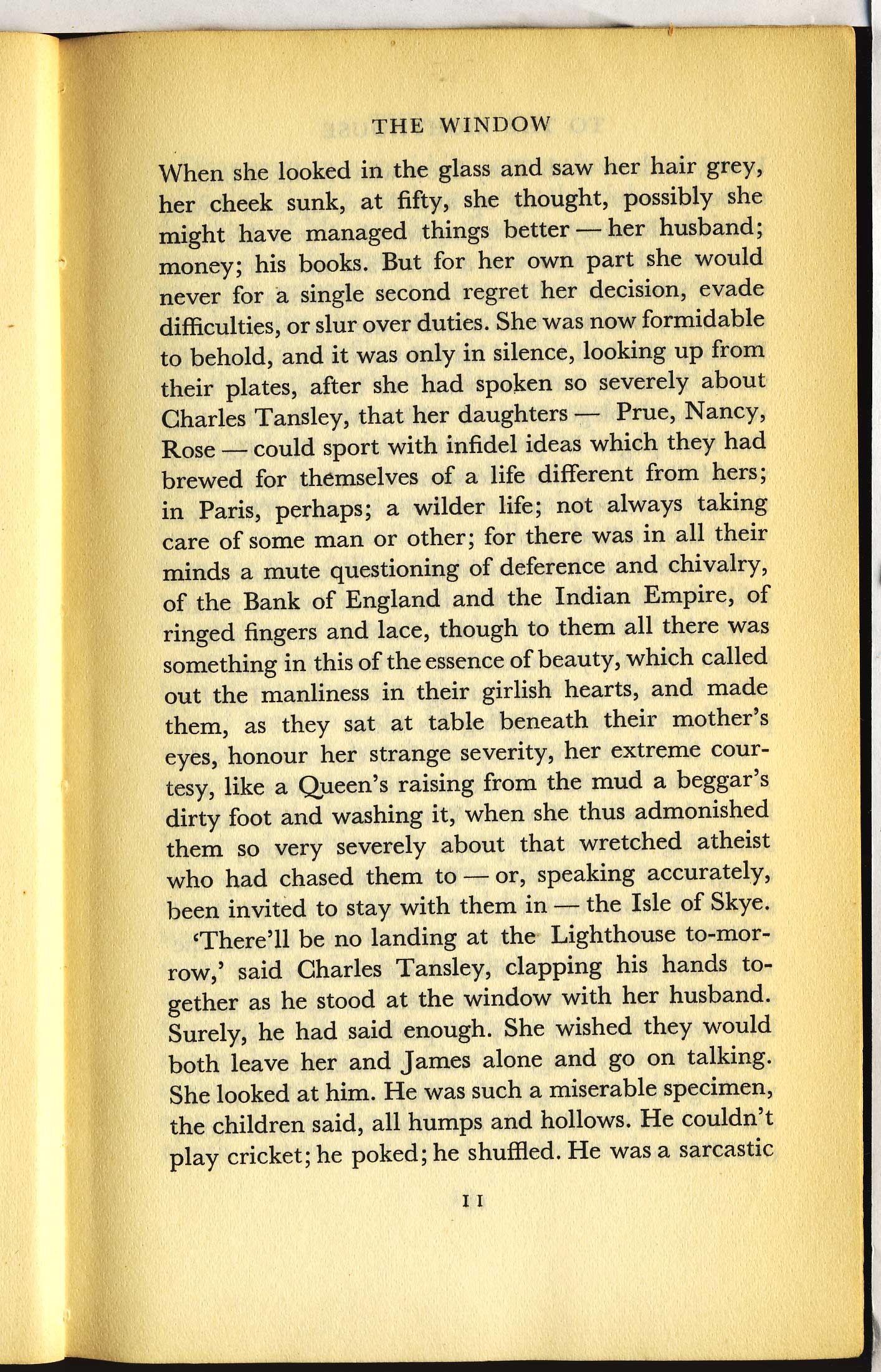
THE WINDOWWhen she looked in the glass and saw her hair grey,her cheek sunk, at fifty, she thought, possibly shemight have managed things better ŌĆö her husband;money; his books. But for her own part she wouldnever for a single second regret her decision, evadedifficulties, or slur over duties. She was now formidableto behold, and it was only in silence, looking up fromtheir plates, after she had spoken so severely aboutCharles Tansley, that her daughters ŌĆö Prue, Nancy,Rose ŌĆö could sport with infidel ideas which they hadbrewed for themselves of a life different from hers;in Paris, perhaps; a wilder life; not always takingcare of some man or other; for there was in all theirminds a mute questioning of deference and chivalry,of the Bank of England and the Indian Empire, ofringed fingers and lace, though to them all there wassomething in this of the essence of beauty, which calledout the manliness in their girlish hearts, and madethem, as they sat at table beneath their motherŌĆÖseyes, honour her strange severity, her extreme cour-tesy, like a QueenŌĆÖs raising from the mud a beggarŌĆÖsdirty foot and washing it, when she thus admonishedthem so very severely about that wretched atheistwho had chased them to ŌĆö or, speaking accurately,been invited to stay with them in ŌĆö the Isle of Skye.ŌĆśThereŌĆÖll be no landing at the Lighthouse to-mor-row,ŌĆÖ said Charles Tansley, clapping his hands to-gether as he stood at the window with her husband.Surely, he had said enough. She wished they wouldboth leave her and James alone and go on talking.She looked at him. He was such a miserable specimen,the children said, all humps and hollows. He couldnŌĆÖtplay cricket; he poked; he shuffled. He was a sarcastic11









